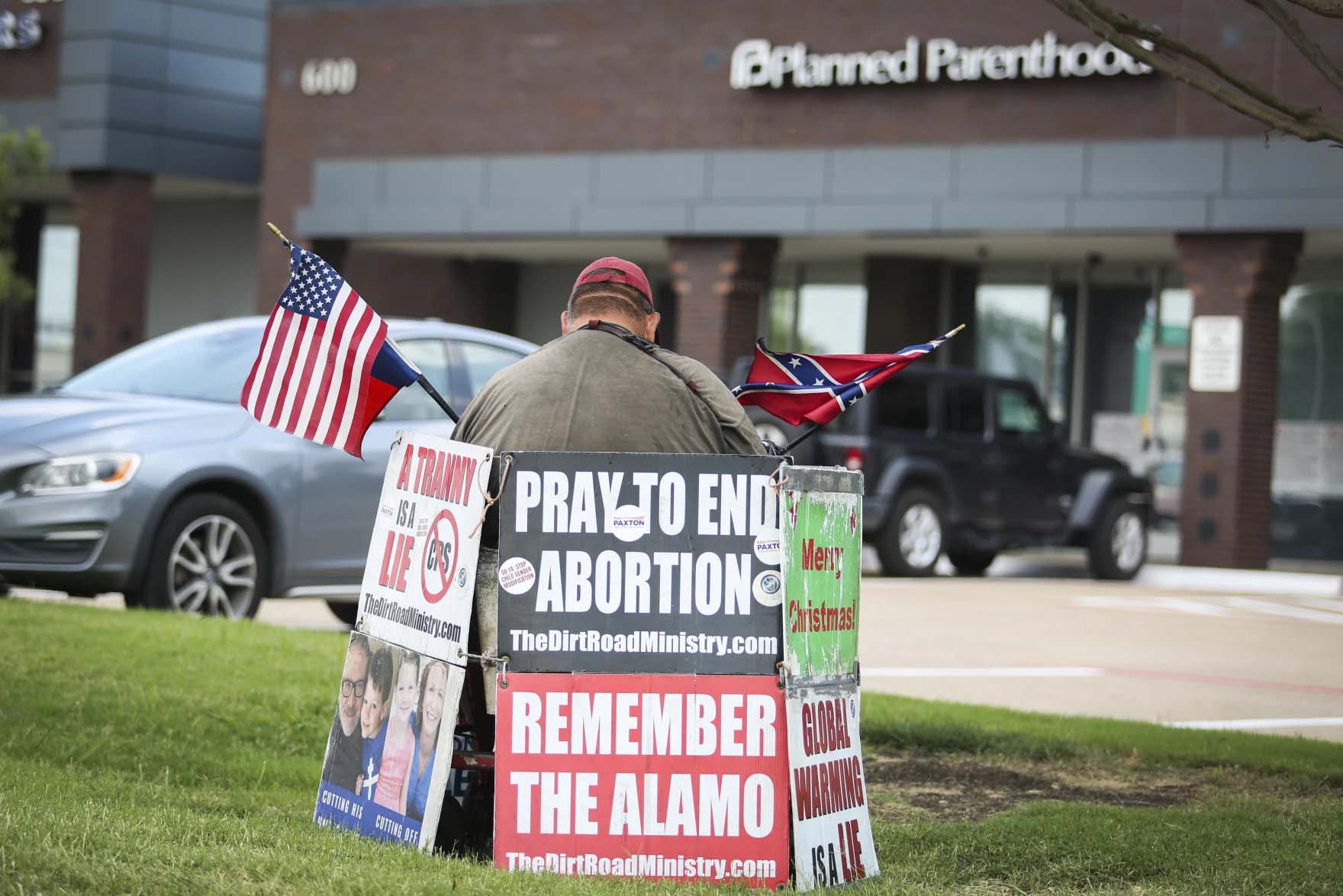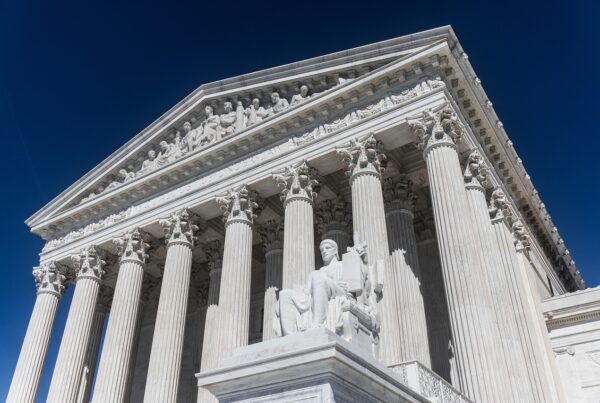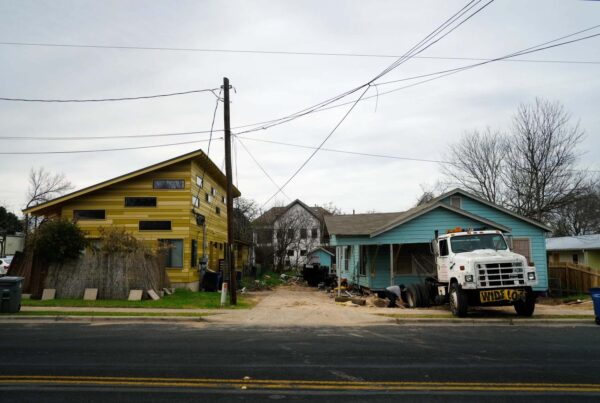From KERA News:
Abortion was a right people thought was secure — the Supreme Court protected it more than half a century ago. But the same court snatched that right away last year.
The reaction across the country was visceral. People took to the streets during hot summer nights in cities across North Texas. They chanted “hands off my body,” channeling their anger into protests.
Others reacted with violence, wanting to ensure abortion access was annihilated in every state, not just the ones that chose to ban it. Clinics were victims of arson, which increased 100%, burglary and bomb threats, which increased by 231% and 133%, according to a report from the National Abortion Federation.
The report also found that stalking and death threats against clinic staff have also gone up by 229% and 20% – but Melissa Fowler, the federation’s chief program officer, said that’s not a new problem. Fowler said protesters have tormented staff for years — and it gets personal.
“They tell them they know where they live,” she said. “They tell them the name of their spouse or their children. They look up their license plate. They follow them home.”
Fowler said anti-abortion extremists were emboldened by the Supreme Court’s ruling in Dobbs, which ended the constitutional protection for abortion under Roe v Wade and gave states the power to legislate abortion restrictions in 2022. Since then, the Department of Justice’s Reproductive Rights Task Force criminally charged 38 people for targeting abortion clinics from 2022 to 2023. That’s almost ten times as many defendants from 2021.
Anti-abortion violence rose particularly in states that protected abortion access, according to the National Abortion Federation Report. Fowler said the thousands of clinics closing in states that banned abortion after the fall of Roe wasn’t enough — people packed their bags and headed to states that protected abortion access to protest there.
Protesters aren’t the only ones heading out of state — Texans seeking abortions are traveling to Colorado and New Mexico to get care.
Going out of state for an abortion isn’t easy. Maleeha Aziz from the Texas Equal Access Fund said it takes time and money. Aziz made that journey herself in 2012. She was a confused college student and thought abortion was illegal in Texas — so she went to Colorado.
“They wouldn’t let me do it all in the same day, so I had to stay overnight,” Aziz said. “So I paid for the hotel, paid for the Uber and Lyft.”
Getting an abortion out of state cost Aziz almost two thousand dollars — something she couldn’t afford ten years ago. She said a family member paid for it.
Cost isn’t the only challenge for people seeking abortions out of state. Medical research indicates the risk of intimate partner violence increases during pregnancy. And homicide is the leading cause of death for pregnant women in the U.S, according to a study from the Obstetrics and Gynecology Journal of the American College of Obstetricians and Gynecologists.
Aziz – who used to work at the Dallas Area Rape Crisis Center — said traveling for an abortion is especially difficult for victims of domestic violence.
“Every little move is watched,” she said. “They can barely get help when they need to get help.”
Gabriella Gonzalez’ sister told news stations that Gonzalez didn’t know where to get aid when her boyfriend Harold Thompson was abusing her.
She reported to Dallas police in March that Thompson strangled her. There was a warrant for his arrest. But police didn’t apprehend him until he shot Gonzalez in the head and killed her in May.
Thompson shot Gonzalez days after she traveled from Dallas to Colorado to seek an abortion.
Every second counts for survivors of domestic violence who are being monitored. And Fowler said concealing an abortion is harder when it takes multiple days to go get it.
“It’s very different going on your lunch break to a clinic versus having to be away for multiple nights,” she said.
But that may be the only option for any Texan who wants to get an abortion for now after a recent court ruling made a pill used in most medication abortions inaccessible by mail.
That means abortion funds like the Texas Equal Access Fund will continue paying for plane tickets and reaching out to clinics in other states. The fund’s director, Kamyon Conner, said the organization will keep doing that up to the day abortion becomes accessible to Texans again.
“Until then, we know that we will continue to be the target of anti-abortion extremists to make abortion out of reach for people who need it,” Conner said.
It’s a risk clinic staffers and people seeking abortions will have to take as well.













